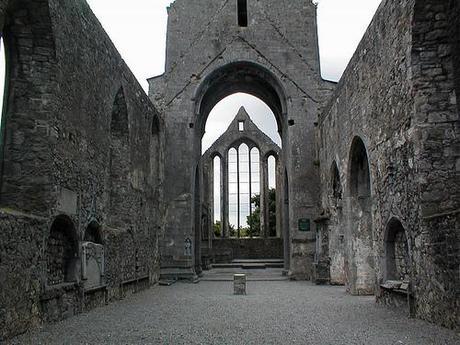Ireland: The Easiest Way into the EU

Church Ruins in Galway, Ireland
Photo by jenbaltes
Ireland
While Northern Ireland (a separate country and under UK rule) has suffered its fair share of trouble, Ireland itself has a long, peaceful history. It remained neutral during the world wars, keeps out of global politics, and is one of the most relaxed places to settle. It offers free health care, has no national military service, has a friendly, welcoming population, and allows dual citizenship, so you won’t have to relinquish your original passport and nationality. Cities such as Dublin are cosmopolitan and vibrant, while the countryside around Ireland is some of the prettiest in the world. Recently, Ireland has suffered some economic problems, which may make finding a job a bit tricky, but it also means that it has never been cheaper to move there. Besides, once you have obtained an Irish passport, you do not even have to go to Ireland, as you are permitted to travel by air, Fred Olsen Cruise, express coach or train in order to holiday, live, and work anywhere in the EU.
Irish Descent
It is estimated that nearly 40 million Americans have Irish ancestors. Irish immigrants have made their way to America by their thousands, and this has some distinct advantages for an American looking to gain Irish citizenship. While most countries make provisions for people to claim citizenship if their parents came from the country, Ireland goes several steps further.
Under the Irish Nationality and Citizenship Act of 1956, people born outside Ireland can claim citizenship, not only if their parents were born in Ireland, but also if their grandparent, or in some circumstances, great grandparent was born there. For an American, this means there is a really good chance that one of your grandparents, or great grandparents (of which you have eight), originated from Ireland. Of course, you don’t have to be an American to apply, as anybody with ancestors born in Ireland has the right to claim citizenship.
If you are claiming Irish descent because of your great grandparent’s origins, there are some stipulations. Somebody in your lineage must have already made an application for citizenship since your great grandparents left Ireland. However, even this stipulation has been wavered on more than one occasion, so it may be worth applying even if this is not the case. It is important, though, to remember that since 1922, Northern Ireland has been part of the UK, not Ireland, so if you grandparents or great grandparents came from the Ulster area, you can only claim citizenship if they were born before 1922 (otherwise they are classed as British).
Irish citizenship by descent

Cork, Ireland
Photo by Travis Crawford
For those descendents who were born, married or died in the United States, these documents are available from the Office of Vital Statistics or Office of Vital Records, in whichever state they resided. For Irish documents, these are available from the Irish General Registry Office. If you do struggle getting hold of the relevant documents, it might be worth hiring a genealogy service who often have access to extensive databases and should be able to track them down for you. All documents need to be originals, not photocopies, and you need to make sure you get the full-length certificates, not the shortened versions.
Applying for citizenship
Once you have established your lineage, you need to request an application form from the nearest Irish embassy or consulate office, or download one from the new Irish Naturalisation and Immigration Service. Fill in the application and send it off along with your documents. After this, your local embassy or consulate will then contact you and arrange an interview. This is quite informal, and nothing to worry about, although you do have to pay a fee (around $150). During the interview, they will discuss your lineage and ask why you wish to settle in Ireland, so it is worthwhile having a little story about getting back to your roots. After about six weeks, you should hear whether you have been granted citizenship. If you have, the embassy or consulate will send you Irish citizenship papers, which will allow you to then apply for a full Irish passport.

